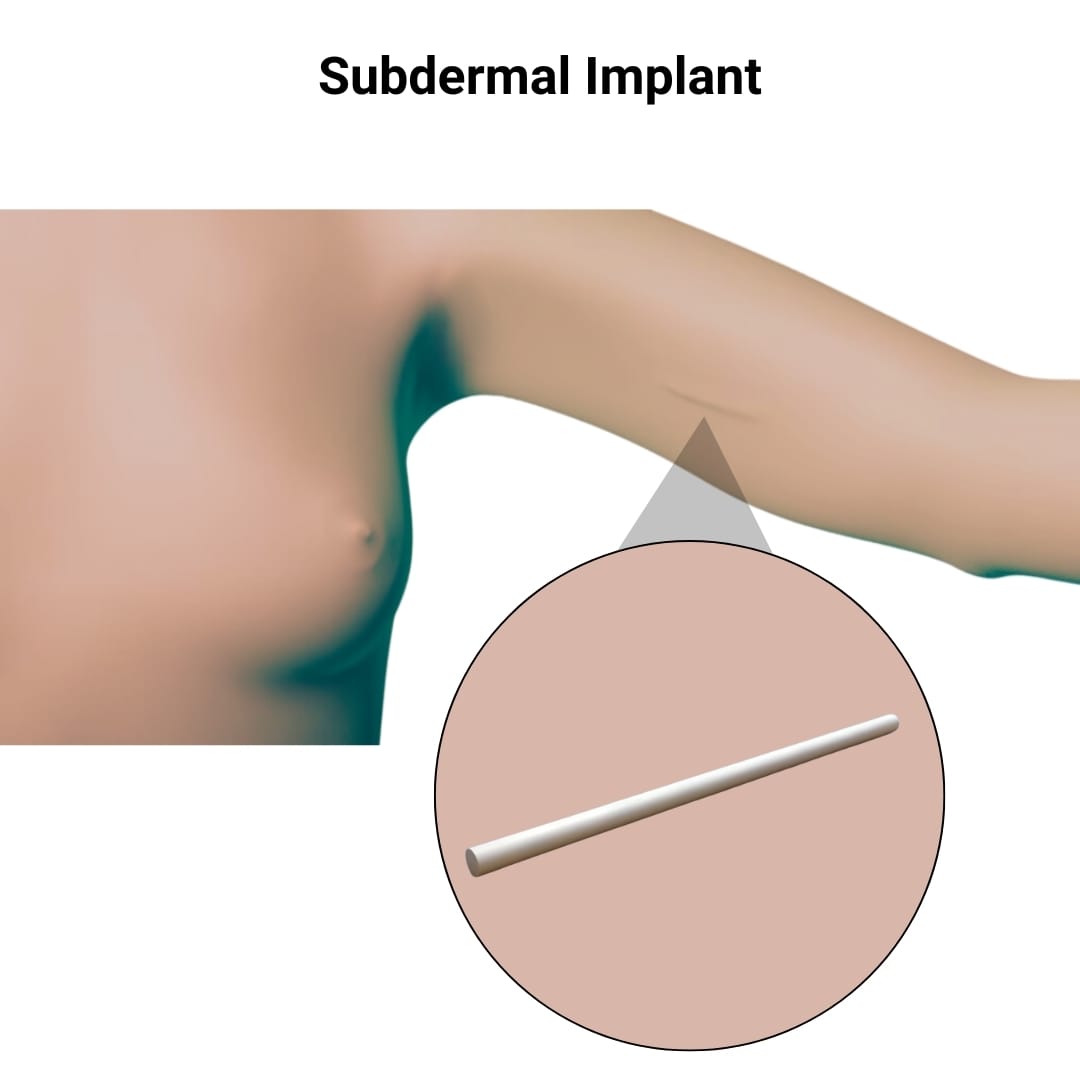What Is a Subdermal Implant?
 A subdermal implant is a type of birth control. A health care professional inserts the implant into your upper arm. One of these implants can prevent pregnancy for up to five years.
A subdermal implant is a type of birth control. A health care professional inserts the implant into your upper arm. One of these implants can prevent pregnancy for up to five years.
The procedure for getting an implant is simple and includes:
- Using a local anesthetic to numb your arm
- Making a tiny incision
- Inserting the device
- Closing the incision
The implant automatically delivers the hormone to keep you from getting pregnant. The only pain is a slight pinch when the anesthetic is being administered. It’s considered to be one of the most effective and safe ways of contraception. It’s also completely reversible, meaning that your fertility is restored once the implant is removed.
A board certified obstetrician and gynecologist, Dr. Felix Cohen is the founder and director of Cohen Medical Practice (CMP). If you want a subdermal implant, Dr. Cohen recommends Nexplanon®, a safe and effective brand. At this Midtown NYC gynecology practice, your gynecologist walks you through the information regarding a contraceptive implant. Dr. Cohen, who has done many of these procedures, discusses what works best for you.
How Does a Subdermal Implant Work?
The hormone used in the implant, progestin, is slowly and steadily released into your body. There’s no medicine to remember to take. Pregnancy happens when a man’s sperm fertilizes a woman’s egg.
Progestin prevents pregnancy and foils the sperm from getting to the egg by:
- Thickening the mucus around the cervix
- Keeping sperm from swimming upstream
- Preventing eggs from leaving the ovaries
The thin, flexible implant is invisible, so it’s discreet. If you decide you want to become pregnant in the future, it’s easily removed, and you’ll be fertile within days. If you want to keep using the implant after five years, it’s easily replaced with a new one.
What’s Involved in Getting a Subdermal Implant?
Subdermal implants are available at your NYC gynecologist’s office. It’s a quick and painless procedure. When you get your implant is determined by your menstrual cycle.
After the doctor has sterilized and numbed the area, they will proceed to:
- Make a small incision on the underside of your upper, non-dominant arm
- Use a special instrument to insert the small device under the skin
- Bandage the wound, often with a pressure bandage
You’re responsible for taking care of the incision and keeping it clean and dry according to your physician’s instructions. You may have slight bruising or soreness at the site. You can apply ice as needed to alleviate your discomfort.
How Effective Is a Subdermal Implant?
A subdermal implant is the most effective, most reliable form of birth control. Nexplanon is highly regarded contraception, but it’s not for everyone.
Your doctor assesses your health and takes a thorough medical history, explaining that you may not be eligible for one of these implants if you have:
- Breast cancer
- Deep vein thrombosis
- Acute liver disease
A subdermal implant is considered most efficient because it’s a set-it-and-forget-it type of contraception. It’s essential that you’re upfront with your doctor about any physical issues you may have so they can treat you properly. Because it doesn’t contain any estrogen, Nexplanon is perfect for women who have problems with that particular hormone.
How Safe Is Nexplanon?
Nexplanon is extremely safe but can have some side effects. Because it’s inserted into the inner side of the upper arm, there’s always a chance of infection when your skin is compromised. Some women experience mood swings or depression after placement of the implant just like with other hormone treatments.
Other side effects that aren’t common, can include:
- Headaches
- Nausea
- Tenderness of the breasts
Dr. Cohen has performed numerous implants with favorable results. The most frequent complaint is irregular menstruation, which is common when starting a hormone treatment. Additionally, the implant won’t guard you against sexually transmitted diseases. You also have a higher chance of having an ectopic pregnancy, which is one that occurs outside your womb, should the contraception fail. Failures with Nexplanon occur less than one percent of the time.
Is Nexplanon the Best Form of Birth Control?
While it may be true that Nexplanon has a great success rate, that doesn’t mean that it’s the right choice for every woman. It may not be a suitable option for women with diabetes, high cholesterol or a history of seizures.
On the plus side, the implant has many positive attributes, such as:
- It has a 99 percent effectiveness rate.
- You can become pregnant right after removal.
- Removal is easy and fast.
Nexplanon has been proven to be as effective as sterilization or IUDs. If you want to have a worry-free form of birth control, a subdermal implant may be your ideal choice. Your CMP doctor even keeps you informed on when it needs to be replaced or offers you a card that states when you’re due for a replacement.
For the most effective gynecological care, including a wide range of birth control options such as a Nexplanon subdermal implant, contact the experts at Cohen Medical Practice (CMP), where you can receive other forms of birth control and feminine healthcare services, including:
- Emergency contraception
- Vaginal ring
- Hormonal IUD
- Fertility services
- Routine exams
- Gender-affirming procedures
- Surgical and non-surgical treatments for a wide range of conditions

